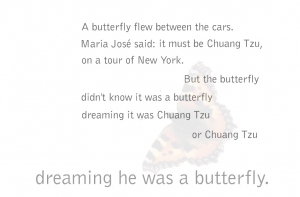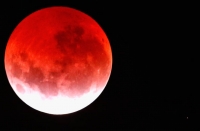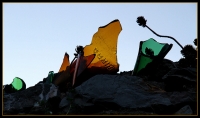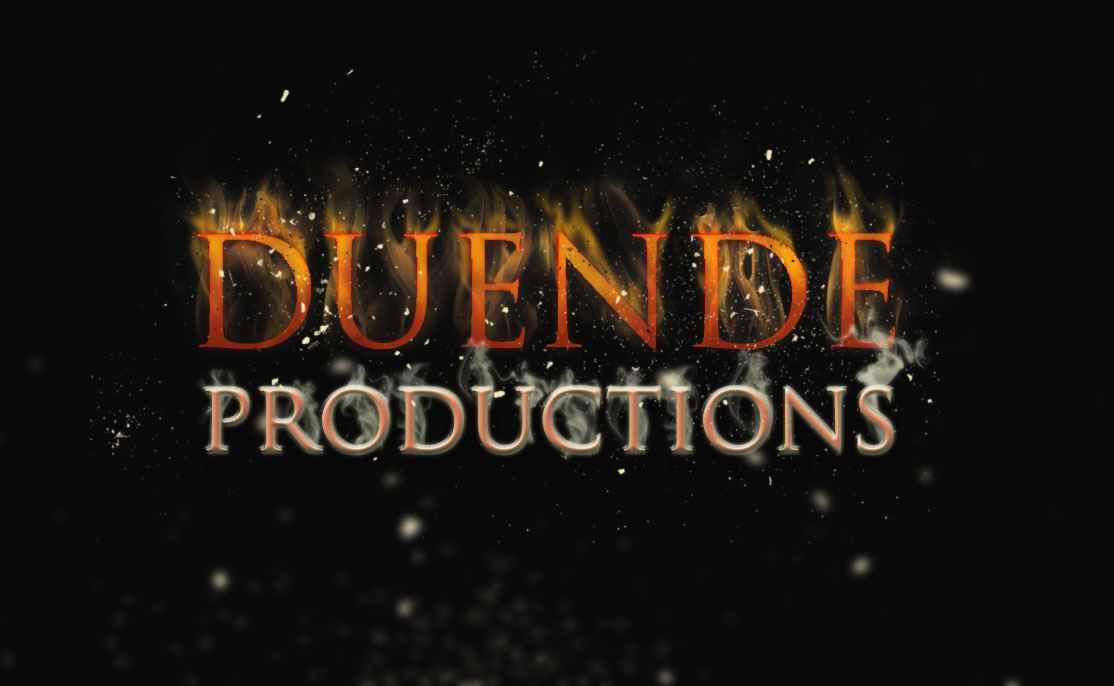Peter Jukes discusses history, life and justice with the late Tony Judt—a master of morally charged rhetoric
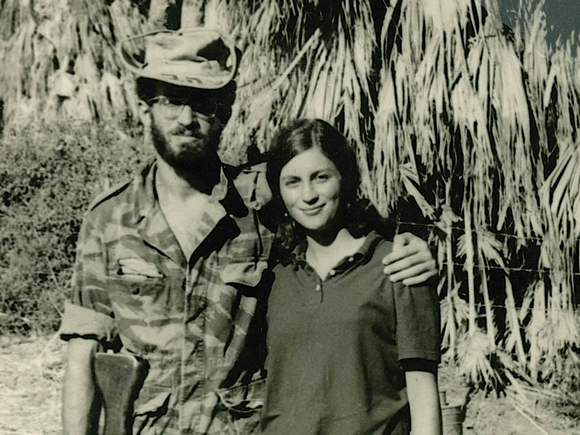
Tony Judt and friend in Israel in 1967: being an ex-Zionist has helped him tackle the controversial issue of America’s relationship with Israel.
Tony Judt died, surrounded by his family, on the the evening of August 6th, 2010. The New York Times obituary can be read here. A full transcript of Peter Jukes’s interview—the last in-depth interview Judt undertook before his depth—can be read on our website here.
Though not one to run shy of controversy, Tony Judt—historian, thinker, professor; commentator on the French left, American identity politics, Israel and much more besides—has never been one of those controversialists whose opposition can be predicted. In the many times I’ve heard him speak, I have never been able to guess in advance what he would say next.
Part of this unexpectedness is no doubt due to his career spent dealing with the exigencies of history rather than the sweeping formulations of philosophy or cultural theory. Born in London in 1948, Judt took a doctorate in history at Cambridge before moving to Paris to study at the Ecole Normale Superieure. His first book, Socialism in Provence 1871-1914, appeared in 1979 and explored a small slice of time in forensic depth. Next came a series of essays on the French left, followed by a book on postwar French intellectuals; it was only gradually that Judt moved on to larger canvasses. As he put it to me: “My first non-academic publication—a review in the Times Literary Supplement—did not come until the late 1980s. And it was not until 1993 that I published my first piece in the New York Review of Books. So that’s a 25-year learning curve.”
I interviewed Tony by email earlier this year (a full transcript of this exchange is available here). The motor neurone disease he was diagnosed with in 2008 has rendered him quadriplegic and he dictated his replies to an assistant. Tony and I have known each other for 12 years, having met at the 1998 Remarque Forum—a conference he sponsored as professor of history at New York University and the first of what would become almost an annual institution, devised to keep the transatlantic dialogue alive after the cold war. The event itself, located at a remote retreat on the border between Florida and Georgia, was no typical academic conference but comprised an eclectic mix of writers, entrepreneurs and other European and American professionals on top of the historians and political scientists—from a former ballet-dancing Swedish cultural attache to a neuroscientist who would go on to be the CNN doctor.
The subject matter was “cultural policy,” something Tony confessed he knew little about. But listening to him was like watching an experienced jazz musician find a new riff, as he discoursed in sentences of considerable syntactical complexity and nuance and arrived, unbidden, at new conclusions. Since few of us then knew who Tony Judt was, we argued back in equal measure. The forum remains my first and best experience of the power of public discourse: diverse, dissenting voices, encouraged to be provocative and exploratory.
Given the controversy that Tony’s writings have generated in recent years, it’s easy to forget just how instrumental the Forum, and the Remarque Institute he founded in 1995, have been in encouraging others to take intellectual courage. Tony admits he is something of an “awkward customer”—a trait that may derive from his childhood in a left-wing Jewish household in London, or his youth amid the adversarial dialectics of Oxbridge. The need to go marching towards the sound of cannon fire has taken him on various journeys—most notably to Israel in June 1967 during the six days war, when he worked as a translator and driver for the Israel Defence Force. He was in Paris in 1968, and visited Prague, Warsaw and California in the 1980s.
By the time I met Tony he was already writing the book on European history that would consolidate his international reputation: Postwar. Largely a work of assimilation and historical consensus, it was in the appendix—entitled “The Unconscious of History”—that Tony set about unpicking one of the times’ darker and more disturbing trends: the way memories of the Holocaust have been used and abused over the last 50 years. This background paved the way for him to enter one of the most contested issues in US intellectual life: America’s relationship with Israel and Zionism.
A 2003 essay in the New York Review of Books, “Israel: The Alternative,” triggered the first great furore. In it, Tony made the case for “a single, integrated, binational state of Jews and Arabs, Israelis and Palestinians” rather than the “doomed” two-state solution. This argument has been heard in Israel since its foundation, but time and place are everything and Tony’s gift for saying “unpopular things in large public spaces” (his own words) brought widespread condemnation in the US.
Previously reticent about his background, Tony is honest about how he used his personal history to leverage this debate: “Being Jewish is not enough. Being an ex-Zionist is not enough. But being an ex-Zionist who wore the Israeli army uniform, and has a pic of himself complete with cutie and sub-machine gun [see opposite]: that helped. And in this case, the end justified the means. No one can shut me up on this subject, so they are forced to resort to cliches about self-hating Jews and the like: evidence of failure.” These revelations came at some personal cost. His op-eds disappeared for a while from the New York Times and he ceased writing for the New Republic. It’s still too early to tell whether Tony’s intervention helped or hindered productive dialogue, but he certainly opened a space to talk about middle-eastern politics which, in America at least, did not exist before.
And he did it with an acute sense of timing. The larger dramatic context was 9/11 and the subsequent invasions of Afghanistan and Iraq. Being a member of the Remarque Forum email list in 2001-03 was a memorable lesson in how the transatlantic dialogue was drifting apart, especially when one of the New York contributors wrote, on the morning of 12th September: “We’re all Israelis now.” This was one of the moments when not quite knowing what Tony would say was nerve-wracking.
The Forum had often discussed Nato military action in Bosnia and Kosovo and—to the shock of some—Tony had fairly unequivocally supported it. One would thus have assumed he was in the camp of the “liberal interventionists,” especially when he also spoke out in favour of the initial policing actions in Afghanistan. But then along came Iraq, and in the September 2006 issue of the London Review of Books Tony produced a devastating critique of the co-option of liberals by the neocons—titled, after Lenin, “Bush’s Useful Idiots.”
Four years later, its conclusion still resonates: “Intellectuals should not be smugly theorising endless war, much less confidently promoting and excusing it. They should be engaged in disturbing the peace—their own above all.” As he explained it to me, “My objection to all my liberal friends who ran with the Iraq hawks is that they were not making the case for liberal interventionism but for exemplary war… I don’t believe that one should have one-size-fits-all moral rules for international political action. That’s what misled [Adam] Michnik and [Michael] Ignatieff and others: because they believed in rights for Czechs and Poles they had to believe in them for Iraqis too and so had to back plans to liberate the latter.”
For all this, Tony remains ambivalent about his role as a public figure. “It does irritate me when I am described as a controversialist and commentator on Israel. I see myself as first and above all a teacher of history; next a writer of European history; next a commentator on European affairs; next a public intellectual voice within the American left; and only then an occasional, opportunistic participant in the pained American discussion of the Jewish matter.”
There’s little doubt, though, that his restless drive to pursue an idea to its proper conclusion has lost Tony friends and allies over the years. It’s not just the authority of knowledge that makes him hard to ignore—there’s also the talent for the provocative comparison or phrase. Tony admits that even during his undergraduate days at King’s College, Cambridge, in the late 1960s, “I was—and knew I was—among the best speakers and writers of my age cohort… John Dunn, my favourite King’s supervisor, once described me as ‘the silver-tongued orator’: a barbed compliment, since it suggested that I spoke before I thought and seduced rather than convinced. But I like it all the same.”
One of the things that entranced me at that first meeting with Tony was this ability to “speak before thinking”—or, rather, to “think while speaking.” Even before the onset of motor neurone disease in 2008, which forced him to conflate speaking and writing (his subsequent works have all been composed in his head and then dictated), Tony both talked in joined-up literary sentences and wrote with an aphoristic freshness. You can see this stylistic mastery let loose in the pieces he has been publishing this year in the NYRB: 1,700-word slices of memory and reflection about, as he put it in the first of them, “events, people, or narratives that I can employ to divert my mind from the body in which it is encased.”
Apart from these, the major work written under the extraordinary conditions of his paralysing illness is also Tony’s least historical and most overtly political. Published this March, Ill Fares the Land began life as a public lecture undertaken “to prove that what I had been saying about this disease—that it doesn’t affect your mind—was externally verifiable… I suppose the book would have been a little tighter and maybe more methodologically consequential if I had done it the old way. But it would surely have lacked the energy and anger.”
The result is an indictment of the Anglo-Saxon model of free-market economics since 1979. If there’s an element of improvisation to the book’s origin, there’s nothing ad hoc about the host of references it unlocks. The historical range underpinning Postwar is all here, but deployed to explain that government wasn’t always bad and that collective action wasn’t always tainted by the “socialist” authoritarian smear.
Dedicated to Tony’s two American-born sons, the text tries to address both a transatlantic and generational divide. The result is an occasionally awkward attempt to reach very different audiences, but from its opening sentence it rarely ceases to compel: “Something is profoundly wrong with the way we live today. For 30 years we have made a virtue out of the pursuit of material self-interest: indeed, this very pursuit now constitutes whatever remains of our sense of collective purpose.” Ill Fares the Land has attracted some negative reviews from both right and left for skipping over the historical failures of Keynesianism and the electoral success of the “third way.” But the financial collapse of 2008 and the way the state had to step in and “save capitalism” are pretty unassailable arguments against the status quo ante.
What Ill Fares the Land does not do is describe a grand project for a brand new hegemonic future—it’s much more modest than that. When I ask him about what some might see as the book’s inherently tragic vision, Tony rejects the idea: “You can’t have a tragic vision in politics: not if you wish to intervene and convince… One of the very few things that I know I believe strongly is that we must learn how to make a better world out of usable pasts rather than dreaming of infinite futures. It’s a very late-Enlightenment view that says that the only way to make a better future is to believe that the future will be better.”
Judt has studied, combated and even taken part in many of the radical new beginnings of the last 60 years: Zionism, the new left, deconstructionism, neoconservatism, neo-liberalism, new Labour. Yet from a deep-rooted left-wing liberal perspective, Ill Fares the Land ultimately offers a conservative conclusion. The left has lost too much in its obsession with newness and creative destruction, it argues. The “usable pasts,” with all their limitations and possibilities, have the virtue of being known.
One of these pasts is the lost role of the public intellectual: well-informed but willing to range beyond the ghetto of expertise—who doesn’t just observe but also tries to intervene or provoke. The economic background to Ill Fares the Land might be incomplete but the reappraising anger is just. Tony’s willingness to take on this topic—to use his fast-depleting energies on this particular stage at this particular time—is yet another dramatic intervention, combining a personal voice with a knowledge of history and sense of occasion in a way that is both responsive and responsible, timely and moral.
Click here to read the full transcript of Peter Jukes’ interview with Tony Judt


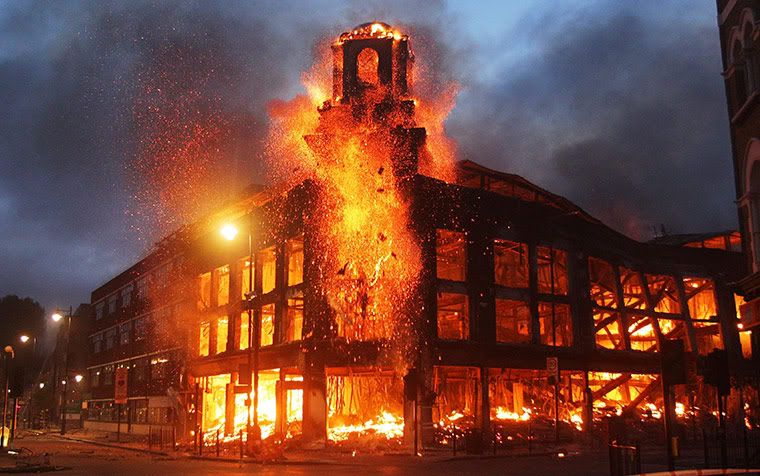

 If there’s any shred of comfort that come come from the horrors of ten days ago, the bomb attacks in Oslo and massacre of dozens of teenagers in Utøya, it is scant consolation for bereft families or a nation in mourning. The biggest atrocity on Norwegian soil since World War II, and one of the biggest terrorist incidents in Europe in decades, is no occasion for political point scoring. But some good may yet come out of it: the full glare of public scrutiny (and one hopes police attention) has now been turned on the largely ignored growth of extreme right-wing Islamophobia in Europe.
If there’s any shred of comfort that come come from the horrors of ten days ago, the bomb attacks in Oslo and massacre of dozens of teenagers in Utøya, it is scant consolation for bereft families or a nation in mourning. The biggest atrocity on Norwegian soil since World War II, and one of the biggest terrorist incidents in Europe in decades, is no occasion for political point scoring. But some good may yet come out of it: the full glare of public scrutiny (and one hopes police attention) has now been turned on the largely ignored growth of extreme right-wing Islamophobia in Europe.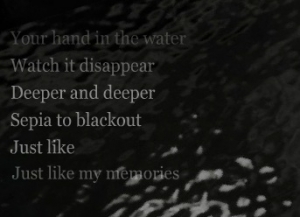
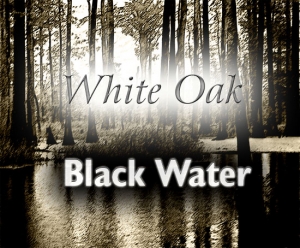
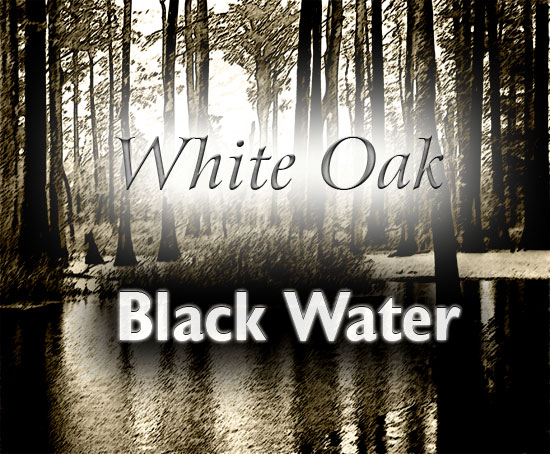
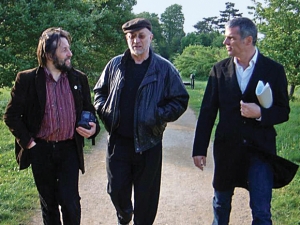
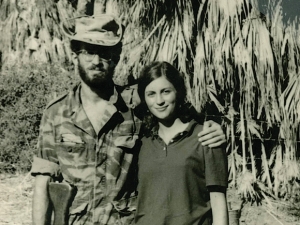

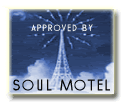 Here’s one of several other shows I’ve written for Radio, this time about social networking
Here’s one of several other shows I’ve written for Radio, this time about social networking
